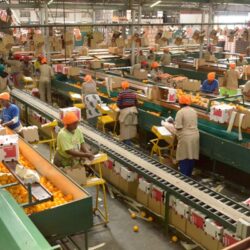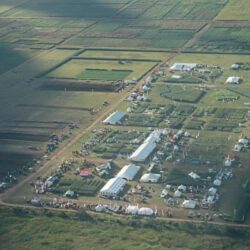South Africa’s credit downgrade by the American credit rating agency, Standard and Poor’s (S&P) to BBB-, otherwise known as junk status, is potentially bad news for South African farmers, but there is a silver lining for exporters.
According to Wessel Lemmer, senior economist at Absa Agribusiness, the sovereign downgrade by international credit agencies will lead to a further weakening in the South African currency, the rand. As a result, interest rates will likely rise and the current low economic growth environment will worsen.
Tinashe Kapuya, agricultural economist at the Agricultural Business Chamber, says the expected depreciation of the rand is a double whammy for farmers.
“It makes imports of raw materials for agro-processing more expensive on the one hand, while making South Africa’s agricultural exports relatively cheaper on the other hand,” Kapuya says.
According to agricultural economist Johan Willemse, several agricultural products are connected to the exchange rate. The price of imported wheat and soybean cake will increase, leading to consumers paying more for basics like bread and meat.
Kapuya says this will lead to food price inflation increasing or remaining at levels above 9%.
Lemmer says a weaker rand increases the cost of fuel, fertiliser, pesticides, machinery and equipment, leading to an overall rise in farming input costs.
The one advantage of the weaker rand for local farmers is that South Africa’s competitiveness will increase on the global market due to cheaper prices for South African agricultural exports. This will likely become an incentive for more agricultural production, says Kapuya.
According to Willemse, exporting sectors like wine, fruit and wool, are the ones that will benefit.
INTEREST RISING
Johan Kirsten, director at the Bureau for Economic Research at the Stellenbosch University, says interest rates might rise rapidly from now on.
“In previous downgrade phases South African interest rates were really high. In the late eighties, rates were as high as 25% after PW Botha’s Rubicon speech and then rates of 18 to 20% in the mid-nineties,” says Kirsten.
“South Africa’s credit rating was only upgraded past junk status in 2000. Just imagine what this will mean for net-farming profits and expansion and growth opportunities in agriculture.”
Kapuya says the cost of lending will increase due to junk status.
“The farm debt in South Africa is estimated at around R160 billion (around US$11 billion), and will likely increase further pressure on lending,” Kapuya says.
“Since credit downgrades reduce the ability of banks to lend money, there is the distinct possibility that the supply of credit to agriculture will decline, while the demand for credit might come down in response to high interest rates. This translates to lower levels of investment.”
This will not only affect farmers, but all agribusinesses that deal with input credit support.




